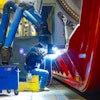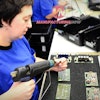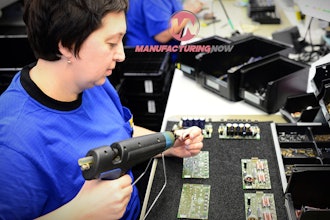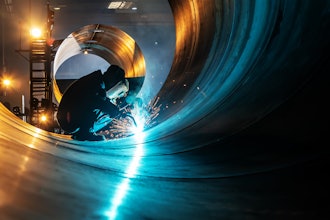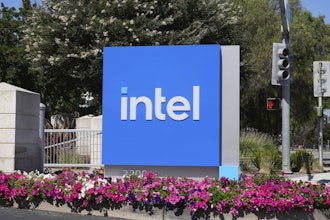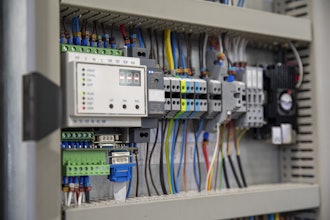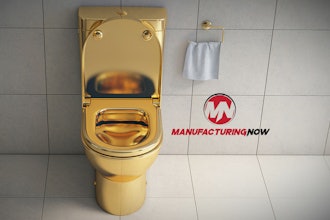
Manufacturing managers of the 1950s grappled with some of the same challenges and prejudices their modern-day counterparts face: the need for productive, reliable workers coupled with a reluctance to hire people with disabilities.
According to research from Deloitte and The Manufacturing Institute, two million manufacturing jobs are likely to go unfilled over the next decade. Tapping into the myriad abilities of people with disabilities can be part of the solution.
In a 1949 report titled Employment of Physically Handicapped and Older Workers, the U.S. Chamber of Commerce and the National Association of Manufacturers urged employers to expand job opportunities for all workers. Though the terminology is insensitive by today’s standards, the report’s goal of “equality of opportunity for the handicapped and older worker, and recognition that ability rather than age or disability should be the sole job test,” are a worthy entreaty.
Sadly, in nearly 70 years since this was published, we haven’t come very far.
The Center for Disease Control tells us approximately one in five (53 million) Americans live with one or more disabilities. Yet only 17.5 percent of people with a disability were employed in 2015, per U.S. Bureau of Labor statistics. That compares to a 65 percent employment rate for people without documented disabilities.
Small and midsize manufacturers have a long way to go – with much to gain.
At MDI, we manufacture plastic packaging solutions with a workforce that is 50 percent people with disabilities. You may be familiar with the more than 90 million white plastic totes and trays we’ve made for the U.S. Postal Service.
We train our employees to grow within MDI or find jobs beyond our organization. In the latter efforts, we sometimes encounter worry and reluctance to hire these workers. But more often, I hear praise from a customer whose fears and stereotypes have been shattered after they’ve hired one of our workers or seen them in action. Ninety-four percent of customers surveyed said our employees with disabilities met or exceeded their performance and quality standards.
At MDI, people with and without disabilities work side by side, producing the best possible products for our customers. People with disabilities successfully operate plastic extruders, run gantry robots and work on a variety of automated process equipment, such as assembly systems and boxing machines.
As of October 2016, 260 of our 521 employees were people with disabilities fulfilling production jobs. Few required workplace accommodations.
Nga Reh, a refugee from Burma, joined MDI in 2012 as a welder. He wears a leg prosthesis and deals with chronic pain as a result of stepping on a landmine at the age of 21. His job with MDI was his first in the U.S. Today, he enjoys the variety of assembly and manufacturing work on the production floor.
Nga and others like him are gaining financial independence, easing the burden on our state and federal agencies, and giving back to their communities. They are also contributing to their employer’s bottom line.
If a new hire with disabilities does need specialized training, skills development or added support, services are readily available – and often at no cost to employers. Employers can access services through a variety of state, federal or nonprofit entities, including:
- The Employer Assistance and Resource Network
- State vocational rehabilitation agencies
- The U.S. Workforce Recruitment Program
- The Office of Disability Employment Policy
- The Job Accommodation Network
- The Society for Human Resource Management
Employers can meet their diversity and social responsibility goals by practicing the ADA fair employment standards and increase productivity with a fully staffed workplace. They can also earn federal tax credits and incentives to help cover any potential accommodation costs, such as the Work Opportunity Tax Credit (WOTC).
At MDI, inclusive hiring has had a powerfully positive impact on our culture. Not only do our employees with disabilities appreciate their jobs, but they bring incredible energy and a positive spirit to work every day – 95 percent of workers surveyed say they like working at MDI. Our low turnover rates and high product-quality metrics support these numbers.
It’s time to acknowledge that people with disabilities are extremely able workers. MDI is a better organization because of them.
Tips for Hiring People With Disabilities
- People have disabilities – disabilities do not define them.
- Don’t make assumptions: every person is different.
- Always ask if an individual wants assistance.
- Before you hire, get buy-in from company and plant management.
- Ensure accessibility to restrooms, lunchrooms and parking.
- Contact your state’s WOTC coordinator for more information on leveraging the tax credit to mitigate costs of any needed accommodation.
- Provide training and communications guidelines for hiring managers.
- Be clear about your expectations: timeliness, productivity, quality standards, etc.
- Offer equal pay and benefits.
- Ask what the applicant needs to do the work required.
Peter McDermott joined MDI in 2008. Prior to this role, he served as president of Itasca Economic Development Corporation (IEDC) in northern Minnesota. McDermott is a trained CPA and spent six years in public accounting in St. Paul. He has over twenty years of experience in senior management positions - the majority of which were spent at manufacturing companies in Minnesota, including UPM Blandin Paper in Grand Rapids and Cirrus Design in Duluth. He received his B.A. in accounting from Babson College.

